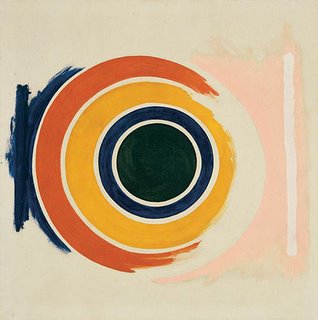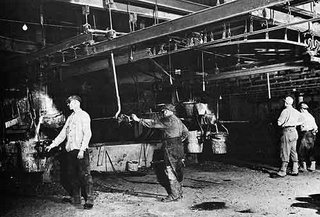1958
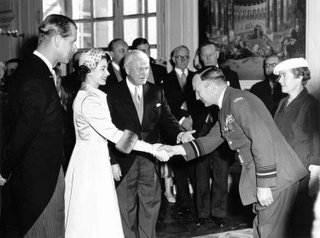 "she moved in circles, and those circles moved"
"she moved in circles, and those circles moved"
Theodore Roethke, I Knew a Woman.
Clyde McPhatter, A Lover's Question.
The Drifters, Drip Drop.
Dwight Pullen, Sunglasses After Dark.
Don and Dewey, Bim Bam.
The Everly Brothers, Down In the Willow Garden.
Jimmy and Johnny, I Can't Find the Door Knob.
The Kalin Twins, When.
Bob Denton with Eddie Cochran, Thinkin' About You.
Dorothy Masuka, Five Bells.
Mel Torme, Body and Soul.
Hylo Brown and the Timberliners, I'll Be All Smiles Tonight.
The Monotones, Book of Love.
Solven Whistlers, Something New in Africa.
Oscar McLollie and Jeanette Baker, Hey Girl, Hey Boy.
Warren Miller, Everybody's Got a Baby But Me.
The Olympics, Western Movies.
Duke Ellington with Mahalia Jackson, Come Sunday (Black, Brown and Beige Pt. IV).
The Elegants, Little Star.
Jerry Butler and the Impressions, For Your Precious Love.So let's finish off 1958, starting with
Theodore Roethke intoning like Zeus in a nostalgiac mood.
Clyde McPhatter, the former lead singer of the Drifters, had left the group back in 1955, but had had only middling luck with charting singles on his own. McPhatter singles were top choice for white performers looking to make a quick remake, which sometimes led to confusion among record buyers and affected McPhatter's sales. Finally, in 1958, McPhatter got a Top 10 pop hit with Brook Benton's "A Lover's Question," an utterly exquisite piece of music whose central question--does the person I love truly love me?--seems unanswerable, at age 17 or 56. This is one of my favorite songs, ever, for what it's worth.
In 1971, after a decade in the wilderness, McPhatter wound up in an R&B revival at the Academy of Music in New York, stuck in an opening slot. "
I used to be a headliner, baby," he told the indifferent audience. A year later, he was dead at age 38.
Recorded in New York on August 7, 1958, with Milt Hinton, King Curtis and arrangement by Ray Ellis; released in September as Atlantic 1199. On
Deep Sea Ball.
As for McPhatter's
former band, here's "Drip Drop," which is a last blast of pure R&B greatness from the "old" Drifters, a year before "There Goes My Baby" and Ben E. King transformed them. This transitory incarnation of the Drifters was headed by lead singer Bobby Hendricks and featured Jimmy Oliver, Gerhart Thrasher, Jimmy Millender and Tommy Evans.
Recorded on April 28, 1958 and released as Atlantic 1187, where it was thrown away as the b-side of the band's take on "Moonlight Bay." On
Let the Boogie Woogie Roll.
Dwight Pullen was born in Alabama, but in his short life he lived all over the place--California, Alaska, Oregon. A year after releasing "Sunglasses After Dark," Pullen became Gene Vincent's road manager; two years later, Pullen was dead of cancer at 31. Released as Carlton 455 in March 1958; on
Rockin' From Coast to Coast.
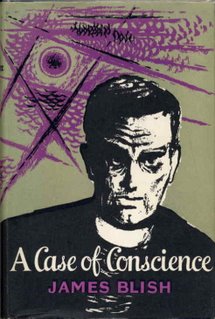
Dewey Terry and Don Bowman were high-school friends from Pasadena, playing in a band called the Squires. Terry also worked after school at a cut-rate record processing plant owned by one Larry Mead, who also happened to run some local record labels. Soon enough, the Squires began releasing singles on Mead labels like Dig This Record and Mambo.
Terry and Bowman left the Squires around the time they graduated high school in 1956, and as a duo wound up on Specialty Records. "Bim Bam" is a typical single of theirs from this period: it's rock & roll refined down to its essential elements. While Don and Dewey didn't have any hits, cover versions of their material often scored--Dale and Grace had a #1 with "I'm Leaving It (All) Up to You," the Olympics took "Big Boy Pete," Jerry Reed had a country hit with "Ko-Ko Joe," and "Farmer John" became a garage rock standard in the '60s.
In the '60s, Terry and Bowman backed Little Richard (in a band that included a young Jimi Hendrix), and also were a lounge act for a time, playing at the Dunes. Bowman eventually renamed himself
Don "Sugarcane" Harris and became a blues violinist, playing with Frank Zappa and the '80s punk blues band Tupelo Chain Sex; Terry kept on as a session guitarist and ran a small trucking company on the side. Bowman died in 1999, Terry in 2003.
"Bim Bam" was released as Specialty 631; on
Jungle Hop.

You could consider the Everly Brothers' take on "Down in the Willow Garden" a horrific remake of "Wake Up Little Susie." As in "Susie," the lovers go out on a date and the girl falls asleep, but this time the singer poisons his girl with tainted burgundy wine, stabs her with a saber, then throws her body into the river.
I'm not sure what teenagers who got
Songs Our Daddy Taught Us, an LP released for Christmas '58, made of a record consisting mainly of murder ballads and lamentations on old age and death. In any case, "Willow Garden" is a gorgeously sung ballad, one that establishes the Everlys as the true heirs to the Blue Sky Boys and the Delmore Brothers.
Recorded on August 16, 1958; on
Songs Our Daddy Taught Us.
Jimmy Lee Fautheree, born in Smackover, Arkansas in 1934, teamed up with Johnny Mathis (no, not him--this was "Country" Johnny Mathis) in the early '50s and the pair got attention at the Louisiana Hayride in Shreveport. But Mathis quit the group in 1955 and Fautheree's brother, Lynn, had to subsitute as "Johnny" for gigs. Mathis returned for some studio-only duets with Fautheree, one of which, the ripping rockabilly novelty "I Can't Find the Door Knob," was released as D 1004 in June 1958 c/w "Keep Telling Me." On
If You Don't Somebody Else Will.
The Kalin Twins were Herbie and Hal, born in Port Jervis, NY, in 1934. When Herbie was drafted into the Air Force in the early '50s, the twins kept in touch by recording songs on a tape recorder and sending tapes back and forth. "When" was their only hit, especially in the UK, where it sold two million copies. As happens, though, the twins never got anywhere near the charts again, and stopped recording by the early 1960s. Hal was killed in a traffic accident in August 2005, and his brother died of cancer eleven months later.
"When" was released in August 1958 as Decca 30642 c/w "Three O'Clock Thrill"; on
When. The Kalins ran
a website until their deaths, which included
an excerpt of an autobiography which, to my knowledge, was never published.
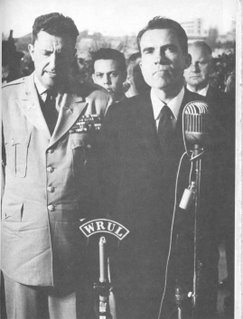
Eddie Cochran, while recording "Summertime Blues" and C'mon Everybody" in the course of five months in '58, also remained in high demand as a session guitarist (working with everyone from Gene Vincent to John Ashley and the Voices of Allah). Here he is on Bob Denton's "Thinkin' About You," a goofy country-pop track in which Cochran provides a riff so sharp and infectious that it steals the song away from the amiable Denton. Recorded in late '58 in Hollywood, released as Crest 1086. On
Cruisin' the Drive In.
Dorothy Masuka, one of the great South African jazz/pop singers of the postwar years, shows how it's done with "Five Bells." Masuka would be exiled from South Africa a few years later for singing about the assassinated Congolese prime minister Patrice Lumumba. On
The Grande Dame of African Music.
 Mel Tormé
Mel Tormé, son of Russian Jews who settled in Chicago (the name was originally Torma), precocious vaudeville singer and drummer, struggling film actor, and who once backed up Chico Marx on stage, had spent most of the '50s trying to keep above water. While of the same generation as Sinatra and Bennett, Tormé got few breaks (the great exception being his and Robert Wells' composition "The Christmas Song," which became a holiday perennial). Sometimes he didn't have a record contract, and he had to perform in Australia and Europe to support himself during lean years. But in '58 Tormé was signed by Verve, where he recorded eight LPs over the next few years. While not big sellers, the records were well received by critics and jazz musicians.
Tormé's take on the ultimate jazz standard "Body and Soul," from his first Verve sessions, highlights his quiet artistry: listen to the way his voice dances above Marty Paich's arrangement, a sort of Baroque cool jazz. Recorded in Los Angeles on June 27, 1958; on
Tormé.
Hylo Brown, born in River, Kentucky in 1922 as Frank Brown Jr., got his nickname due to his vocal range. In the mid-'50s he was touring with Flatt and Scruggs, and formed a subsdiary group of sorts, the Timberliners--the two bands would routinely swap touring schedules and TV appearances. In 1958, Brown and the Timberliners recorded a self-titled LP that is generally considered to be one of the best bluegrass albums in history.
"I'll Be All Smiles Tonight," a 19th Century ballad by one T.B. Ransom, had been covered by everyone from the Carter Family to the Louvin Brothers. Brown's version is built around two intricate duets--Red Rector's mandolin and Tater Tate's fiddle, and Brown's tenor and Rector's baritone.
Recorded in Nashville on August 10, 1958, also with Jim Smoak (banjo) and Joe Phillips (bass). Find on
Best of Vol. 2.
And who wrote the book of love?
The Monotones never disclosed. As Greil Marcus wrote in
Stranded, "Book of Love" is "
the ultimate one-shot. Single of singles." Released in February 1958 as Argo 5920. On
Doo Wop Uptempo.

South Africa's The Solven Whistlers were headed by Spokes Mashiyane, a pennywhistle player who helped establish
kwela as the country's most popular dance music. "Something New in Africa" comes as a curtain raiser to 1960, when 17 African nations achieved independence. On
The History of Township Music.
Oscar McLollie was an R&B journeyman based out of Los Angeles, and had spent much of the decade hopping around labels (including Mercury, Excelsior and Modern) and trying all sorts of styles--Christmas novelties ("God Gave Us Christmas"), regional novelties ("All the Oil in Texas"), rock & roll ("Red Hot Rod Roll"), classy Nat King Cole-esque pop ("Pagliacci (With a Broken Heart)") and yet more novelties ("Take Your Shoes Off Pop").
Finally, in 1958, McLollie was given a singing parter, Jeanette Baker, at the behest of Class Records owner Leon Rene. McLollie and Baker hated each other on sight, but managed to record a one-off duet, "Hey Girl," which neatly stole from the Kendall Sisters' "Yea Yea" and Fats Domino's "La La." It was a solid hit, and McLollie went back to the studio to record a follow-up, only to find Rene had procured another partner for him: a woman known only as Annette. "
We recorded together and then I never saw her again," McLollie said years later. Released as Class 228; find on
The Golden Age of American Rock & Roll Vol. 8.
 World Cup '58: world meets Pelé
World Cup '58: world meets PeléWarren Miller was born in Philadelphia in 1937 and only released three singles in his life. "Everybody's Got a Baby But Me" is his first. For cash-in rockabilly funded by UAR, a label that United Artists had just rolled out to flog its film soundtracks, this is still pretty hot stuff. Released as UA-104X in February 1958. Find on
That'll Flat Git It! Vol. 12.The Olympics were founded by former gospel singer Walter Ward, and featured tenor Charles Fizer, who was shot to death by National Guardsmen during the Watts riots in '65. The greatest of their hits,"Western Movies," an ancestor to Public Enemy's "She Watch Channel Zero," was released in May 1958 as Demon 1508, c/w "Well!". On
25 All Time Novelty Hits.
Duke Ellington first performed his "
Black, Brown and Beige" suite ("a tone parallel to the history of the American Negro," as he called it) in 1943, to mixed response. He shelved the work for a decade or more, then reinvented in it the studio, with Mahalia Jackson adding the weight of the world. Recorded February 11-12, 1958, in Los Angeles; on
Black, Brown and Beige.
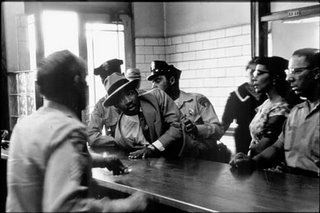
The Elegants, from Staten Island, took their name from a bottle of Schenley's whiskey ("Elegance"), stole "Little Star" from Mozart, and were never heard from again after they charted with the single. An American success story, in miniature. Released in July 1958 as APT 25005 c/w "Getting Dizzy"; on
Doo Wop Uptempo.
And at last, here's the mighty "For Your Precious Love," a cornerstone of soul, one of the finest vocal records of its era, pure secular gospel.
Jerry Butler and Curtis Mayfield had started out with the Chicago-based Northern Jubilee Gospel Singers, but by 1957 they were singing R&B, in a band called the Roosters, which included three recent arrivals from Tennessee--Sam Gooden and brothers Arthur and Richard Brooks. Vi Muszynski, a songwriter and aspiring record label owner, recorded some demos with the Roosters near the Cabrini Green housing project, where some of them lived.
"For Your Precious Love" came out of these sessions, and was taken up by Vee-Jay, which distributed the record and in the process changed the Roosters' name to the Impressions. Released as Falcon/Abner 1013. Find
here.

Films of 1958Vertigo.Touch of Evil. The
opening shot.
Popiól i Diament (Ashes and Diamonds). "The end of the war isn't the end of our fight."Kakushi-toride no san-akunin (The Hidden Fortress).
Man of the West.The Horse's Mouth. Constable: "
Have you just sent a telephone message of a threatening character to Mr. Hickson of Portland Place?"
Gulley Jimson: "
I only said I'd burn his house down and cut his liver out."
Constable: "
Now he doesn't want to prosecute, but if you go on making a nuisance of yourself, well, he's gonna have to take steps."
King Creole. For me, the best Elvis movie by a mile, in which Elvis has to choose between Carolyn Jones, who later played Morticia Addams, and Dolores Hart, who later became a
nun. And his performance of "Trouble" is about as defining a moment as he ever had.
The Tarnished Angels.Gunman's Walk.Horror of Dracula. When Mr. Cushing
met Mr. Lee.
Separate Tables.The Big Country.Fiend Without a Face.The Sheepman.Thunder Road. I know it's late, but we can make it if we run.


















